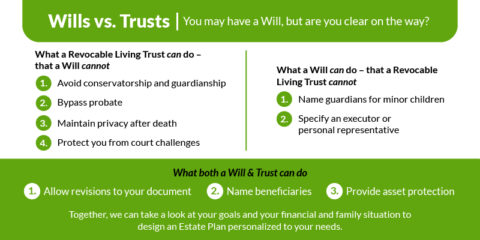Read this article to find the latest information about Benefits Of Putting Your Home In A Trust, all carefully summarized by us.

The Ultimate Guide to the Benefits of Trusting Your Home
Imagine this: You’re on a dream vacation, basking in the warm glow of a tropical paradise. Suddenly, a call from home shatters your tranquility. A pipe has burst, flooding the basement, and you’re left feeling helpless and worried.
Had you placed your home in a trust, you could have been enjoying your vacation worry-free. A trustee would have promptly handled the repairs, ensuring that your property was protected and your peace of mind preserved.
What is a Trust?
A trust is a legal arrangement where you (the grantor) transfer the ownership of your assets (in this case, your home) to a trustee. The trustee then manages and distributes those assets according to your instructions.
Why Put Your Home in a Trust?
Establishing a trust for your home offers a myriad of benefits, including:
-
**Estate Planning:** Trusts streamline the probate process, avoiding lengthy court proceedings and potential delays in distributing your assets after your demise.
- Asset Protection:** Trusts shield your home from lawsuits, creditors, and other financial threats.
- Privacy:** Trusts are private documents that keep your financial affairs confidential.
- Flexibility:** Trusts can be tailored to your specific needs and preferences, allowing you to control how your home is managed and distributed.
- Peace of Mind:** Knowing that your home is protected and your loved ones will inherit it without hassle provides immense peace of mind.
Types of Home Trusts
There are various types of trusts suitable for home ownership, including:
- Revocable Living Trust:** You can amend or revoke this trust at any time.
- Irrevocable Trust:** Once established, this trust cannot be changed or terminated without the consent of the beneficiaries.
- Special Needs Trust:** Designed for individuals with disabilities to protect their assets and ensure their eligibility for government benefits.
- Asset Protection Trust:** Protects your home from creditors and lawsuits.
Understanding the different types of trusts will help you select the one that best meets your needs.
Tips for Establishing a Home Trust
-
**Choose a reputable and experienced trustee:** The trustee will manage your home and assets, so it’s crucial to select someone trustworthy and knowledgeable.
- Clearly define your instructions: Outline your wishes regarding the management and distribution of your home in the trust document.
- Consider tax implications: Consult with a tax advisor to understand the potential tax consequences of establishing a trust.
- Review your trust regularly: As your circumstances change, you may need to update your trust to reflect your current wishes.
- Inform your beneficiaries: Keep your beneficiaries informed about the existence and terms of the trust to avoid any confusion or surprises after your passing.
FAQ on Home Trusts
-
Q: Can I still live in my home after putting it in a trust?
A: Yes, you can retain the right to occupy and use your home even after transferring it to a trust. -
Q: What happens if the trustee breaches their duties?
A: If the trustee violates the terms of the trust, you or your beneficiaries can take legal action to hold them accountable. -
Q: Is it expensive to establish a home trust?
A: The cost of establishing a home trust varies depending on the complexity of the trust and the fees charged by the attorney who prepares it. -
Q: Can I put other assets besides my home in a trust?
A: Yes, you can include other assets, such as investments, savings, and personal property, in your trust. -
Q: What are the drawbacks of a home trust?
A: Potential drawbacks include the cost of setup, the loss of direct control over your home, and the need to adhere to the trust’s terms.
Conclusion
Placing your home in a trust is a prudent decision that safeguards your asset, simplifies estate planning, and provides peace of mind. By understanding the benefits, types, and considerations involved, you can determine if a home trust is the right choice for you.
Are you interested in exploring the topic of home trusts further? Share your questions and thoughts in the comments below.

Image: flaglawgroup.com
We express our gratitude for your visit to our site and for taking the time to read Benefits Of Putting Your Home In A Trust. We hope this article is beneficial for you.
 Azdikamal.com Trusted Information and Education News Media
Azdikamal.com Trusted Information and Education News Media